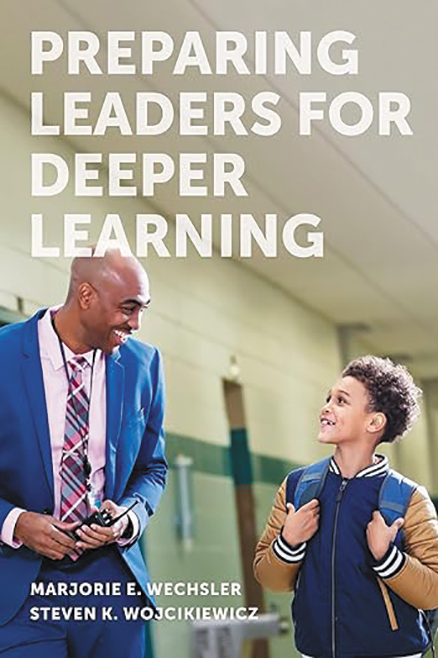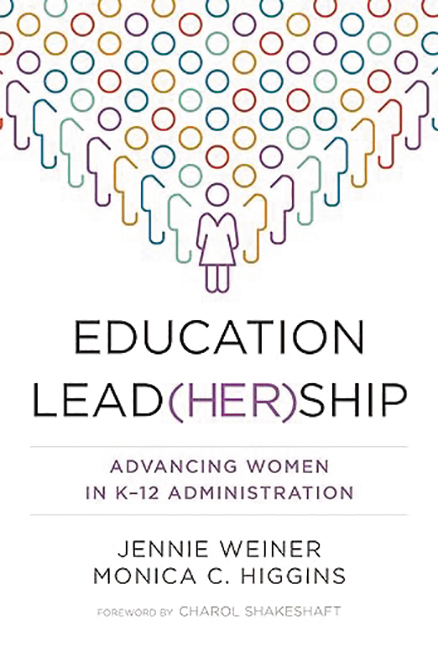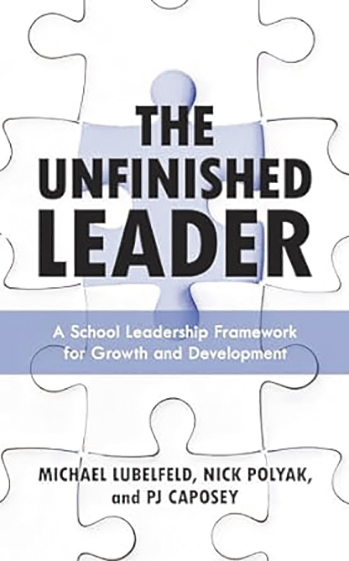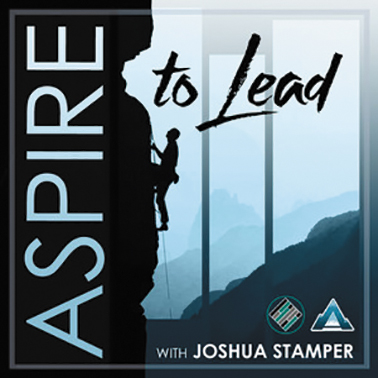Syllabus: March 2024
Preparing Leaders for Deeper Learning

In Preparing Leaders for Deeper Learning (Harvard Education Press), Marjorie E. Wechsler and Steven K. Wojcikiewicz present findings from their study of how leadership preparation and professional development programs can best prepare principals to build systems and learning environments that support deeper learning. The authors, both from the Learning Policy Institute, evaluated leadership programs and consulted with experts to write this book, which highlights case studies of programs known for exemplary practice. Through a comparative analysis, the authors identify five dimensions of leadership for deeper learning:
• Following and sharing a vision of deeper learning
• Prioritizing equity
• Building collaborative communities of practice
• Providing deeper learning opportunities by creating developmentally appropriate and improvement-focused staff supports
• Adopting a contextualized approach for systemic alignment to deeper learning
As more leadership development programs are structured with a focus on deeper learning, Wechsler and Wojcikiewicz write, “more leaders will enter the field with the capacity to build educational environments conducive to the practice, more teachers will be empowered to create deeper learning classrooms, and more students will have the opportunity to experience deeper learning and develop the knowledge and skills they need to thrive.”
—Nicole J. LeClaire | Principal
Kenesaw Jr/Sr High School, Kenesaw, NE
Education Lead(her)ship: Advancing Women in K–12 Administration

Not many words can describe the immense pride I felt reading Education Lead(her)ship: Advancing Women in K–12 Administration (Harvard Education Press) by Jennie Weiner and Monica C. Higgins. As a female education leader, I can attest to the barriers noted within this text as well as the gems that Weiner, an associate professor of educational leadership in the Neag School of Education at the University of Connecticut, and Higgins, a professor of education leadership at the Harvard Graduate School of Education, drop to help current and aspiring female leaders navigate the field. As the authors write, teaching has historically been cast as “women’s work,” which explains why men tend to hold leadership and upper administration positions in education, while women predominantly teach in the classroom. To illustrate the “feminization of the teaching profession” and the challenges and triumphs of women leaders, the authors share true accounts from female educators, including stories about microaggressions, women’s leadership efficacy, and how more women have recently broken through the proverbial glass ceiling. Chapters also feature questions for both reflection and group discussion. For anyone seeking to learn about the sacrifices and successes of female education leaders across the U.S., this book is a must read.
—Latrese Younger | OSQ (Office of School Quality) Specialist
Virginia Department of Education, Richmond, VA
The Unfinished Leader: A School Leadership Framework for Growth and Development

In The Unfinished LEADER: A School Leadership Framework for Growth and Development (Rowman & Littlefield), Michael Lubelfeld, Nick Polyak, and PJ Caposey draw on their experience as superintendents to lead readers through a journey of self-improvement. The authors challenge school leaders to consider their relationships with staff in unique ways. For example, when a principal is reluctant to share strategies with others, the authors do not accept humility as a reason; instead, they contend that humility is masking insecurity, as leaders may doubt what they have to say will be liked, and in some cases fear it will even be hated. Lubelfeld, Polyak, and Caposey encourage leaders to be mindful of the people with whom they surround themselves at work, given how much time they spend with them. They also urge leaders to find the courage to improve their schools’ cultures by hearing the viewpoints and experiences of all stakeholders, including those in historically marginalized groups. Ultimately, the authors emphasize the need for leaders to call people in, not call them out. Doing so requires continual reflection, a theme woven throughout this leadership guide.
—S. Kambar Khoshaba | Principal
South County High School, Lorton, VA
“Aspire to Lead”

Hosted by Joshua STAMPER, the “Aspire to Lead” podcast focuses on all aspects of educational leadership and is grounded in Stamper’s personal journey from professional graphic designer to middle school assistant principal. With its diverse range of topics and guests, the podcast offers school leaders at all levels a variety of ideas and strategies to try in their own work. For example, Episode 240 with Principal Tyler Cook delves into the power of genuine connections, emphasizing the notion that everyone is a leader. Stamper’s mantra of “watering the ground where your feet are planted,” which he shares during the podcast, resonates as a call to nurture authenticity in leadership. Episodes such as 259, “Executive Functions in Every Classroom: Featuring Mitch Weathers,” and 266 “Mastering the Pursuit of Passion: Featuring Phil Januszewski,” offer practical strategies and insights into supporting students’ academic and personal development and nurturing teacher well-being to avoid burnout. Stamper’s human touch permeates each episode, creating a podcast that not only informs but also inspires those who lead—and those who aspire to do so.
—Brenda Yoho | Retired Director of Educational Support Programs
Danville District 118, Danville, IL
